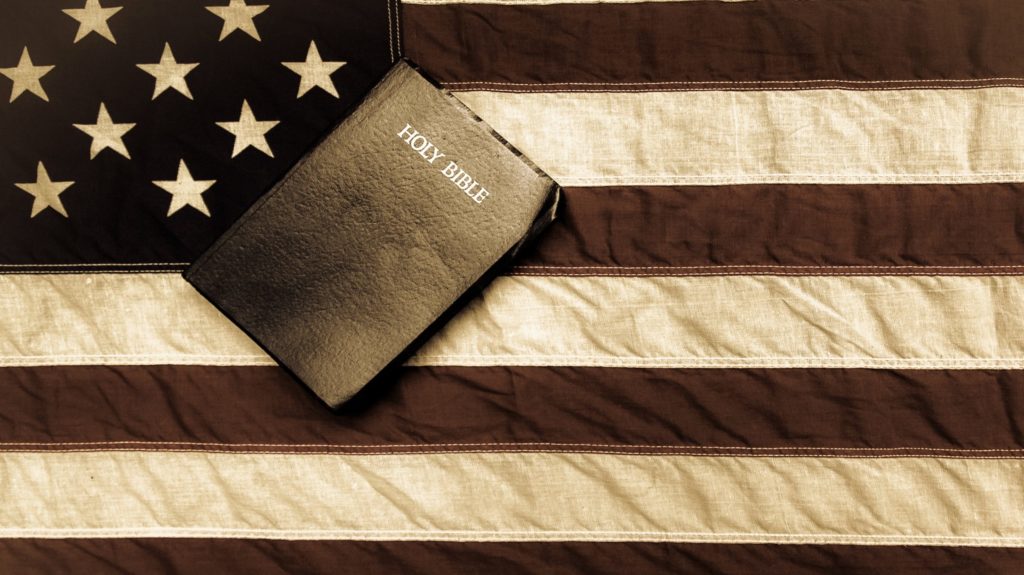A new report identifies what researchers call "three big myths" about faith and politics in the U.S., concluding that the nation is less polarized around such issues than popularly believed -- and that faith leaders are key to healing division in American society.
The findings were shared Sept. 17 by More in Common, a nonpartisan research and civic nonprofit based in New York, in a 140-page report titled "Promising Revelations: Undoing the False Impressions of America's Faithful."
The study drew on data collected from a representative sample of over 6,000 U.S. citizens polled at various intervals during the period September 2023 through August 2024. More in Common teamed up with polling companies YouGov and ROI Rocket for several rounds of surveys and focus groups, while also conducting online research, social media analysis and conversations with faith and community leaders.
While the nation's heated social discourse might suggest a deep connection between faith and political polarization, "the findings in this study challenge some key parts of the story that we have been hearing about our polarized landscape," such as "narratives that evangelicals are chiefly concerned with politics, that the relevance of religion is fading, that young generations feel distant from their faiths, and that religious Americans are mostly intolerant of others," said the report's executive summary.
In contrast, "the evidence shows something different to what we might expect: more shared values, more desire to keep faith distinct from partisan politics, more longing to transcend divisions, more respect for each other, more commitment to pluralism and more desire for guidance and help from local faith leaders and institutions in navigating this difficult time in American life," said the report. "We also find less intolerance towards other faiths, and less of a generation gap within faith communities."
The report noted three critical misperceptions about the relationship between faith and politics in the U.S., particularly with regard to evangelical Christians -- that faith is "all about politics," that faith is "becoming irrelevant in Americans' lives," and that religious Americans are "intolerant."
More in Common researchers found that "non-evangelicals significantly overestimate the importance evangelicals place on their political identity and partisan affiliation" -- by as much as 10 times, with the estimate that 41% of evangelicals say political party affiliation "is their most important identity" and the actual response at just 4%.
Evangelicals are also seen to be more affiliated with the Republican Party (63% estimate) than they actually are (46% actual), with the data revealing evangelical Christians hold "a wide range of political views" and prioritize religion, family and general American identity over their political party choices, said researchers.
Erroneous assumptions about faith and political affiliation "carry significant consequences," fostering what researchers called "collateral contempt," or "the tendency for animosity towards political opponents to spill over to religious groups … perceived to be aligned with one political team."
That animosity can in turn provoke "generalized hostility towards entire faith communities based on their supposed political affiliation," the report said.
Although several studies by Pew and Gallup have tracked significant declines in religious affiliation in the U.S. -- trends that More in Common researchers call "important" -- the general public "underestimates the value Americans, especially younger Americans, still place
on personal faith and belonging to faith communities.
"In fact, our research found that most Americans (73 percent) see their faith as an important part of who they are," said the report. "Young generations of Jewish and Muslim Americans, in particular, value their Jewish and Muslim identity much more than commonly assumed."
Specifically, said the report, "the decline in trust in institutions is impacting Americans' relationship with religious institutions and houses of worship."
A third "perception gap" centers on the view of religious Americans as "intolerant," although report data showed that "the majority of Americans across religious groups value religious pluralism and want the United States to be a place where people of all religions feel that they belong," said the report, with 78% of evangelicals and 75% of Muslims sharing that ideal.
While "many Americans see the United States as a country founded on values inspired by Christian principles … most do not see a conflict between recognizing the many ways in which Christianity shaped America through past centuries, and their personal commitment to building a pluralistic society," the report said.
Faith leaders have a vital role to play in resolving such disjunction and discord, as they still enjoy high levels of trust and are "well positioned to mitigate the toxic national polarization that faces the country," said researchers.
By drawing on their faith traditions -- and by "highlighting shared values and practices such as self-reflection, humility, kindness, and dignity" -- faith leaders "can build common ground, reduce fear, and foster unity," researchers said.
Kindness and respect for human dignity were the values most highly esteemed by study participants, regardless of religion, researchers found.
"This report shines a light on the enormous potential of America's faith communities to heal divisions and foster a more united society," said Jason Mangone, executive director of More in Common. "It's time we move beyond the misperceptions that have distorted the public narrative about faith in America and embrace the vital role faith leaders can play in building bridges across divides."

